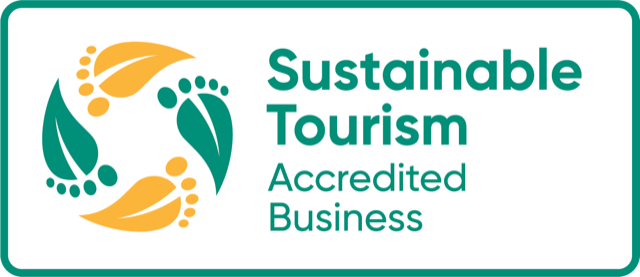Sustainability

Building a greener market
Salamanca Market is working hard to become more sustainable and environmentally friendly.
This is no small challenge as the market is the most visited tourist attraction in Tasmania, attracting up to one million visitors annually resulting in more than a tonne of waste in the bins around the market each Saturday.
We are committed to improving our practices to reduce our impact on the environment and are guided by the City of Hobart's commitment to Zero Waste to Landfill by 2030.
Organic waste bins
Salamanca Market has invested in an organics waste stream. This results in more than 24 tonnes of compost (around half of the weekly waste generated through the market) diverted away from Hobart’s landfill every year. Compostable waste bins, sporting a green lid and signage are collecting food scraps, coffee cups (including lids), cutlery, straws and hot food takeaway containers.
Compostable waste is taken to the McRobies Gully Waste Management Centre (the tip) at South Hobart. It takes around three months to break down to become Certified Organic Compost and the City sells this as quality garden compost to the general public. The compost is also used extensively in our city parks and gardens.
Watch a video about the waste that is turned into compost at the Waste Management Centre.
Recycling bins
Recycling bins have been used for many years at the market and are still incredibly important part of sorting our waste. The market diverts more than 20 tonnes of recycling each year through our yellow recycling bins.
Cardboard bins for stallholders
Our market has a dedicated cardboard box collection bin. This assists stallholders who who use them to bring their stock to the market. Having a dedicated cardboard collection point means that these items can be collected seperately and then taken to the appropriate point at the Waste Management Centre.
No plastic bags
Salamanca Market has been a plastic bag free market for many years now. Instead stallholders provide paper carry bags or reusable bags for customers to buy. Many of these bags are hand printed or designed by the stallholder themselves. Salamanca Market also has a branded environmentally friendly hessian bag that can be purchased at the information booth.
Take away food
All of our food stallholders are required to use Certified Compostable Packaging which are compostable and environmentally friendly. This includes coffee cups, straws and food containers which can all be placed in the green waste bins at the market. Although compostable Packaging is now mandatory for all businesses and events within the Hobart municipality, Salamanca Market helped to lead the way and was one of the first to implement this practice back in July 2019.
Water bubblers
There are two water fountains at the market where people can refill their water bottles for free. This initiative is part of the Good Water Project and the two fountains which are located on the Salamanca Lawns, are part of a greater network of water stations along the Hobart waterfront. This is a fabulous way of encouraging tourists to refill for free rather than buying single use plastic water bottles.
Park Benches made from plastic bags
There are two green plastic benches that sit beside the Salamanca lawns that have been made from plastic bags. Thousands of plastic bags were collected from Salamanca Market stallholders back in 2019, as we transitioned away from plastic towards paper and compostable bags. The plastic bags were then turned into the two park benches by
Replas - Recycled Plastic Products.
The design shows the historic buildings of Salamanca Place and the market stalls in front of them.These are a permanent reminder of the collective efforts of everyone at the market to become more sustainable.
Certified Sustainable Business
Salamanca Market is a Sustainable Tourism Accredited Business which is awarded to businesses that demonstrate their commitment to environmental sustainability.


How can you help
- You can bring you own bag or basket
- Place your waste in the right bin.
You can learn more about compost and how you can start composting at home at the City of Hobart's Compost information page.